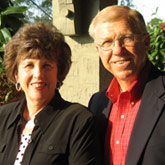A recent Harvard study found that new retirees often face not just a challenge about how to spend their time but an identity crisis as well. A Harvard Business Review article about the study opened with two key questions the author said are common among the newly retired: “Who am I now?” and “When people ask me what I do, what do I even tell them.”
I’m sure those questions are on the minds of many people who have recently wrapped up long careers. And since I’m not retired, I’m equally sure that I can’t fully appreciate the identity-related issues that must accompany such a significant turning point. Still, I can’t help but wonder about the role that faith can play in navigating the transition away from full-time paid work.
A believer’s retirement
While the cultural view of retirement as an extended time of leisure has no biblical basis, it’s highly likely that most of us will one day step away from the paid workforce. Despite the fact that a growing number of current workers say they plan to work past the typical retirement age of 65 and/or work for pay to some degree in their later years, far fewer of today’s actual retirees did either one. For a variety of reasons — personal health issues, the need to care for a loved one, a layoff, difficulty finding work, and others — most people end up retiring at or before age 65.
So, it’s important to prepare for that time of life — financially, as well as spiritually and emotionally.
What’s in a word?
I’ve long believed that a lack of clarity about our identity is at the root of many people’s financial problems. Our culture would have us believe we’re “consumers.” But have you ever looked up the definition of that word? To consume means to use up, squander, or spend wastefully. How’s that working out?
Of course, the Bible doesn’t say that on the sixth day God made consumers who would use up, waste, and squander all that he made in the previous five days. It says he made man and woman in his image. Financially, he made us to be stewards or managers of all that he created.
The difference in identities — as well as purpose and financial priorities — couldn’t be more stark.
Some things never change
It was interesting to find out what prompted the Harvard study. Here’s one of the lead researchers, organizational behavior professor Teresa Amabile: “My previous research discovered that people are happiest in their work on those days and those weeks and those months when they feel that they’re making progress in meaningful work,” she said. “And I wondered: What happens when you’re leaving that meaningful work behind?”
But what if retirement isn’t about leaving such work behind?
For Christians who retire from a marketplace job, a good starting point for dealing with any identity issues is to recognize that at a foundational level nothing has changed. You’re still a Christ follower. You’re still a child of God. And you still have an important purpose and a difference to make. In fact, being free of the demands of a 9-to-5 “job” may free you to have your greatest Kingdom impact yet. And that should make for an especially meaningful “retirement.”
Of course, how you pursue that purpose or make that difference will probably look very different. It may involve the type of work you did during your career, or not. Perhaps an activity you were spending time on in the evenings or on weekends will become more of a focal point. You may do your work as a volunteer instead of for pay. Or you may start your own business, whether part-time or full-time.
A different type of retirement planning
While many of us spend a lot of time preparing for our later years financially, it’s just as important to pray and think about what you’ll actually do in retirement — how you could make the greatest God-glorifying difference during that unique season of life. Professor Amabile said the person who figures out what they will do in retirement before they actually retire is very rare.
If you’re retired, how has it impacted your sense of identity? If you’re not retired, how much thought have you given to what you’ll do in your later years?









